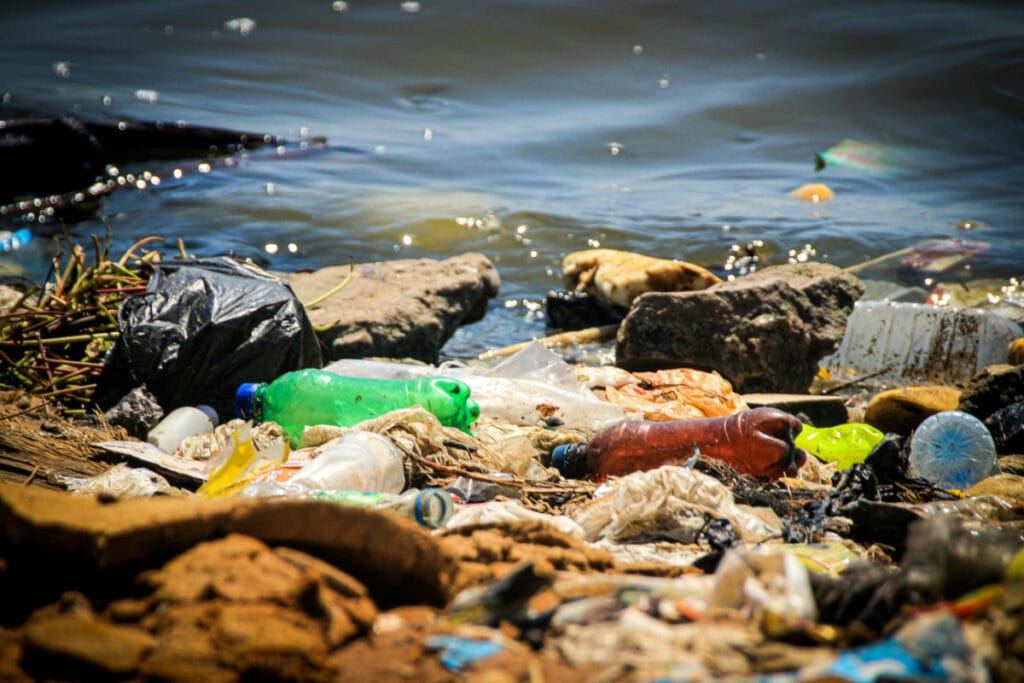
In the long run, recycling bottles can make a dramatic difference on the environment. It may not matter when one bottle gets sent to the landfill, but consider that around the world, more than 480 billion plastic water bottles are used every year. If all of these bottles don’t get recycled consistently, that’s an almost unfathomable amount of recyclable plastic that’s going to sit in a landfill for potentially hundreds of years.
Just as the effects that recycling has on the environment are highly beneficial, the impact of not recycling can be enormous. Read on as we explain these long-term environmental consequences in detail.
Immediate Consequences of Not Recycling Plastic Bottles
Although the long-term effects of failing to recycle plastic bottles are significant, the short-term effects aren’t anything to aspire to, either.
Not recycling plastic bottles means that they almost immediately end up in landfills or as harmful litter in natural environments (both on land and at sea). As the plastic begins to break down, the plastic bottles immediately begin to release harmful chemicals and microplastics.
There’s also the risk of harm to wildlife, who may end up ingesting the plastic or becoming entangled in it. With every bottle that isn’t recycled, that’s one more bottle that’s overtaxing landfills and increasing pollution.
Long-Term Effects on Ecosystems
When bottles aren’t recycled, they end up in landfills. Landfills’ negative effects on the environment have been found to be significant, in large part because they require natural habitats to be destroyed. In the United States alone, over 1.8 million acres of land have been used for landfills. This deprives wildlife and plants of habitat, severely harming ecosystems by effectively decimating them and replacing them with landfills.
Landfills also contribute to and cause serious toxic pollution issues, with further harm to ecosystems, as we describe in more detail in the following sections.
Climate Change Implications
When plastic bottles aren’t recycled, this means that more virgin plastic must be made to replace them, which requires more energy than recycling does. Plastic recycling can save up to 70 percent of the energy required to produce virgin plastic, thereby reducing overall emissions by 70 percent. By reducing energy use, we reduce carbon emissions, which means that we contribute less to climate change.
Water Pollution and Health Risks
Another important impact that recycling plastic has on the environment is the fact that it reduces the risk of water pollution and, by extension, the impacts of this pollution on human health. The more plastic bottles that end up in landfills, the more landfills we’ll need to create, which can increase rates of water pollution due to the high concentration of pollutants in these areas.
For instance, research has shown that groundwater and airborne pollutants from landfills can increase the risk of those living nearby, eventually developing cancer, and experiencing birth defects, infertility, and respiratory conditions such as asthma, among other serious health consequences. These toxins can also impact hormone levels (causing what’s known in medical terms as endocrine disruption) in both animals and humans.
Soil and Land Pollution
An estimated one third of all plastic waste ends up either in freshwater or in soil, in the form of tiny (sometimes almost invisible) microplastics. Discarded water bottles are one of many plastic contributors to this severe and widespread issue.
While much of the focus relating to microplastics has been on marine microplastic pollution, terrestrial microplastic pollution could in fact be anywhere from four to 23 times higher, creating serious concerns regarding their toxic effects on ecosystem and human health. Ongoing research will be needed to determine the long-term effects of this widespread pollution of the soil with plastics.
Economic Consequences
Due to its effects on the environment, plastic pollution has significant negative economic consequences as well. These consequences are so vast and far-reaching that it’s hard to measure them accurately, but as an example, a 2019 study estimated that as much as $2.5 trillion is lost every year as a result of plastic pollution in the ocean alone.
Recycling has additional economic benefits, according to the EPA. These benefits include “increasing economic security by tapping a domestic source of materials, supporting American manufacturing, and creating jobs in the recycling and manufacturing industries.” That’s all the more reason to prioritize recycling plastic bottles and other materials.
Sign up to Start Recycling Bottles with CLYNK
Now that you’ve examined the issue of recycling through the lens of plastic bottles, gaining a better sense of the impact that recycling has on the environment, why not sign up with CLYNK online? After registering, you’ll be mailed free CLYNK cards, bag tags, and a voucher for 10 free CLYNK bags.
Or if you’d rather sign up in person, you can head to a CLYNK kiosk in your area to receive your membership card, a free box of bags, and bag tags. For further details on how recycling with CLYNK works, be sure to check out our FAQs page.